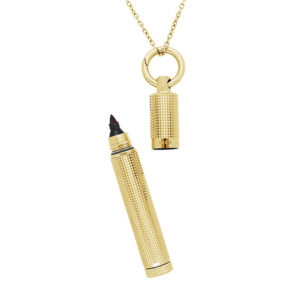
The U.S. Department of the Treasury’s Office of Foreign Assets Control (OFAC) has placed Myanma Gems Enterprise on its Specially Designated National list—which means the vast majority of Burmese rubies, jade, and other gems cannot be purchased by U.S. companies.
Myanma Gems Enterprise—also known as Myanmar Gems Corp. and Myanmar Gems Enterprise—is a subdivision of the government’s ministry of mines and is “responsible for all gemstone activities in Burma,” according to a statement from the Treasury Department. It also organizes the local emporiums and sales where rubies and jade are sold, including one currently taking place in the country’s capital, Naypyitaw. (The company did not respond to a request for comment submitted via its Facebook page.)
U.S. citizens are forbidden from dealing with specially designated nationals (SDNs), and those companies’ U.S. assets are frozen.
Doug Hucker, CEO of the American Gem Trade Association, notes that this action is not an outright ban on Burmese gemstones.
“It’s a ban on dealing with certain entities. But suffice it to say that these entities have a lot of control over the gem trade. They cover a big, big part of the territory.”
That makes it very difficult to deal with Burmese gems right now, he says.
“You have to be very precise and cautious about where those gemstones come from.”
One problem is Burma has a “chaotic” supply chain, he says.
“It’s very opaque, and many times it’s hard to know where those gem materials are coming from. You do have supply chains that are not under the control of the military and go outside the official channels. But if you source Burmese goods, the chances are very good that the mines are under control of the [sanctioned] entities.”
He says that currently the gem business “is in a holding pattern. No one wants to buy gemstones that support [Burma’s current] government. We need to better understand our responsibilities. Until then, everyone is going to be more careful about buying gemstones from those areas, if they do business there at all. Even if you buy gemstones from Hong Kong or Thailand, you need to have better assurances that those gemstones did not originate from the sanctioned companies in Burma.”
He points out that Burmese gems that were already purchased and are currently in sellers’ inventories prior to this action are not impacted.
Sara Yood, deputy general counsel of the Jewelers Vigilance Committee, agrees that U.S. gemstone suppliers that deal in rubies, jade, and other colored stones that could have been mined in Burma should increase their due diligence to ensure their gems don’t originate from those entities.
“Colored gemstone suppliers need to be very careful about sourcing,” she says. “I would scrutinize any supply that’s coming from that area of the world, particularly from Thailand, as that’s where many Burmese gems end up. You need to get assurances from your suppliers that they are doing their due diligence.”
She suggested gem traders use the Organisation for Economic Co-operation and Development’s (OECD) Due Diligence Guidance as a framework.
The OFAC action comes amid the Myanmar military’s increasingly violent crackdowns on countrywide protests following its Feb. 1 coup. (Myanmar is a formal version of Burma in the local language and the country name favored by the military; the Biden administration has mostly used Burma since the coup.) More than 600 civilians have been killed since the military overthrew the country’s democratically elected government, according to Assistance Association for Political Prisoners, a local group.
“This [OFAC] action should not be a surprise to anyone who has followed the situation there,” says Yood. “As human rights violations have continued and even escalated, they shouldn’t be surprised that the U.S. government has taken further action.”
This is the third round of sanctions the U.S. government has imposed since the military seized power in Myanmar.
In February, OFAC added three gem companies to its SDN list: Myanmar Ruby Enterprise, Myanmar Imperial Jade Co., and Cancri (Gems and Jewellery) Co. On March 25, it added two more companies with reported gem connections: Myanma Economic Holdings Public Co. Ltd. and Myanmar Economic Corp. Ltd.
Gemstone traders have said they prefer the current administration’s approach of singling out specific military-connected companies to an outright gemstone ban. From 2008 to 2016, the Tom Lantos Block Burmese JADE Act prohibited all Burmese gems from entering the country.
But this latest action, while still company specific, will likely have a “broad effect” on the country’s gem sector, Yood says.
“It’s difficult because the U.S. government is concerned about not harming the people of Burma,” she says. “Every statement has said that this is not aimed at them, but at the military.
“It’s a fine line because the commodities that come out of the country should support the people. But they are not, because they are so controlled by the military.”
Top: Bagan, Myanmar (photo: Getty)
- Subscribe to the JCK News Daily
- Subscribe to the JCK Special Report
- Follow JCK on Instagram: @jckmagazine
- Follow JCK on X: @jckmagazine
- Follow JCK on Facebook: @jckmagazine







